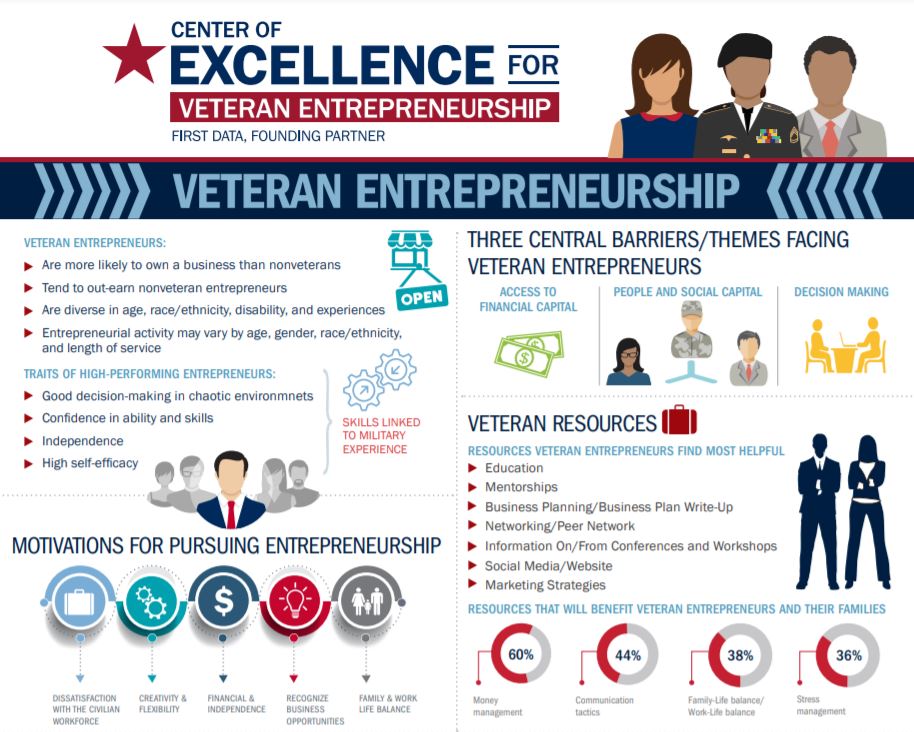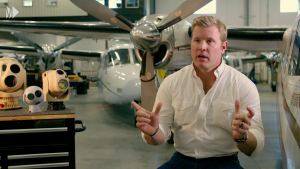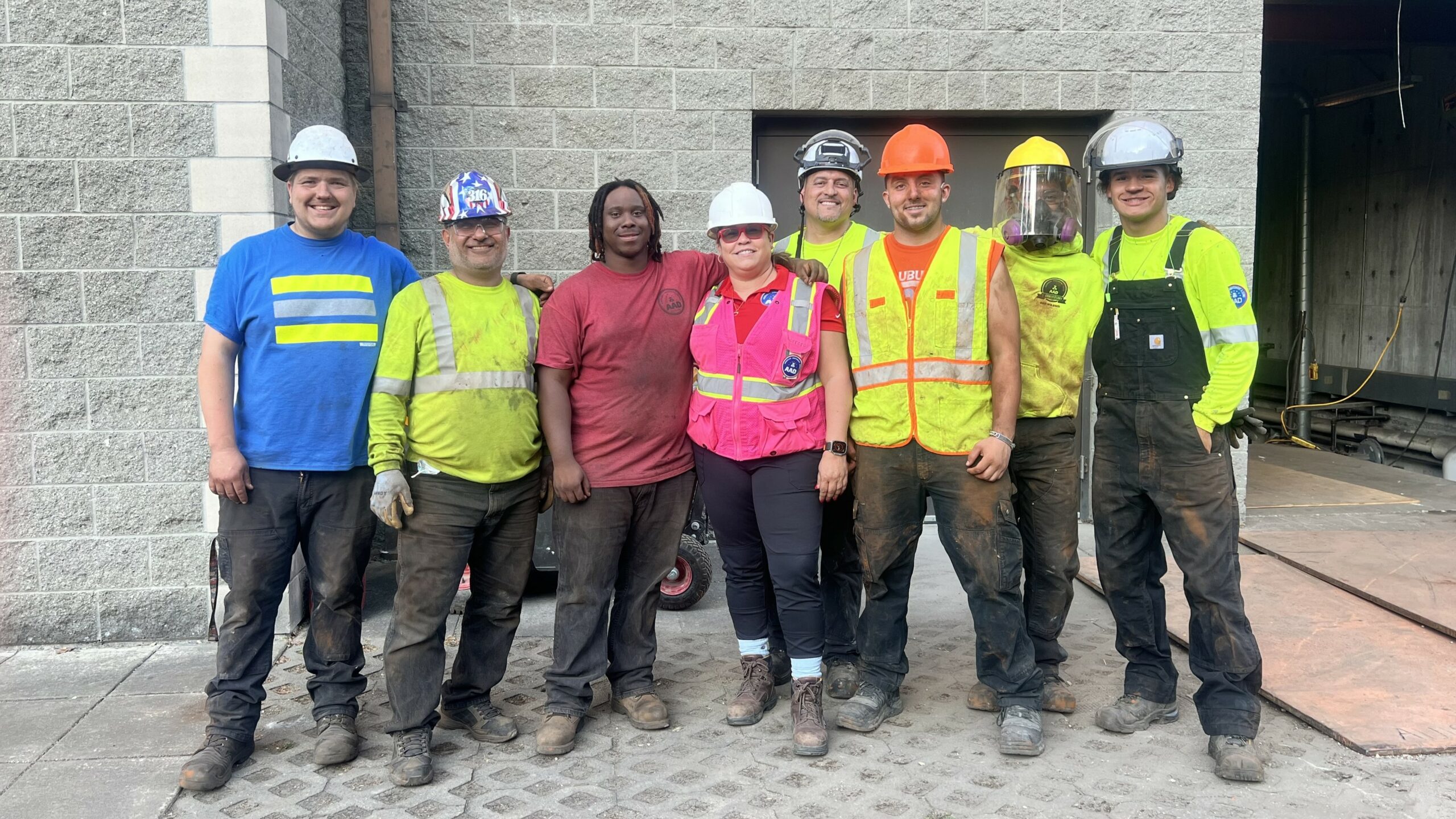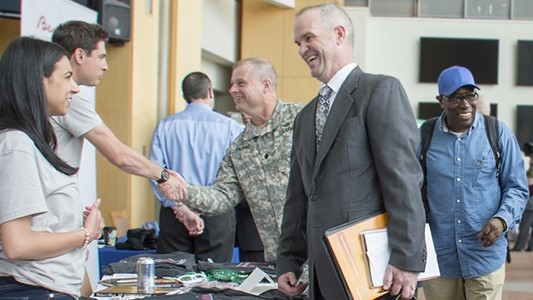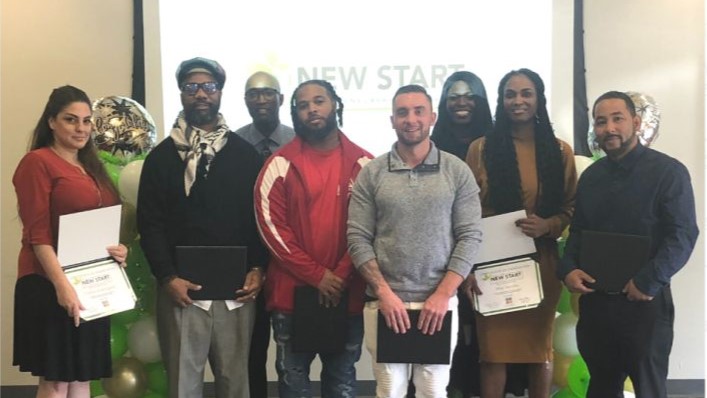In the U.S., 2.5 million veterans become their own bosses. While the rate of new veteran startups has slowed over the decades, it’s still considered a viable and thriving option after serving our nation.
But like any new business owners, veterans may need help getting started. That’s where the Institute of Veterans and Military Families (IVMF) at Syracuse University can be a resource.
There are three main barriers, or themes, that veterans looking to start their own businesses often face: access to capital, a strong social network, and help with decision-making in a business world that might be unfamiliar to them.
IVMF’s veteran entrepreneurship programs try to eliminate those barriers through education, mentorship, networking, and help writing business plans.
Pivoting During the Pandemic
Since launching an entrepreneur boot camp in 2007 with 17 veterans, the program has grown to serving 150,000 veterans. Four types of programs (also known as pillars) have helped veterans and their families transition to new careers, either with existing organizations or their own. Even with COVID-19, IVMF has continued to provide support by pivoting online.
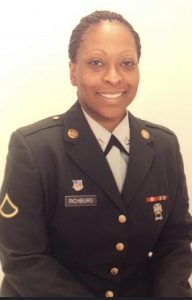
“The program provided plenty of great information, mentorship, and business resources that helped to provide opportunities for growth,” says former U.S. Army medic and IVMF Entrepreneurship boot camp graduate Tracey Richburg. She launched her line of condiments, The Savannah Sauce Company, in 2014.
While she had already gotten the business off the ground before she found IVMF, she says the program and the community has helped the company become successful.

“Camaraderie with other veterans,” she says. “These connections provide a sounding board for business ideas, opportunities for joint ventures and partnerships, and much needed support from peers.”
Before the pandemic, participants would meet in person at universities or at military bases – using IVMF’s model.
Now, the programs online are helping those just starting out as their own bosses, as well as existing businesses that are trying to survive the pandemic.
“We moved a lot of programs online at the time, but also created new programs to meet entrepreneurs in this unsettled reality we’re in,” says Misty Stutsman Fox, director of IVMF’s Entrepreneurship and Small Business program.
“That includes programs helping existing veteran-owned businesses pivot. We’re also helping folks looking ‘if this is the right time for me to understand more about entrepreneurship’ and where they can go for resources. We’re creating resources that then help them with their finances, with social networking, and mentorship because that’s their top three challenges. We’re helping them try to do all of that right now.”
The Boot Camp Approach
Before starting any of IVMF’s programs, veterans and their family members take an assessment so they can determine which offerings may be the most beneficial to them. Some may find that instead of being their own boss, continuing education or training to work for someone else is better for them now and becoming a “third shift entrepreneur” after a job and education.
“Folks have gotten out [of active duty] and are leveraging the opportunity that higher education has provided them with the most expansive GI Bill in the history of our nation. They can have their resume catered to the job they want. We have corporations that have reached out and said, ‘We want more veterans because now we understand the value and want them in here’ so we also create onboarding best practices for those careers,” Stutsman Fox says.
That’s where IVMF programs such as Onward to Opportunity (O2O) have been the better fit, according to Mike Bianchi, IVMF senior director of Education and Career Training.
“When COVID-19 hit, within two weeks our installation base team transitioned to a virtual delivery format. Participants come together on Zoom or Blackboard and we bring in our usual normal modules of personal branding, networking, emotional intelligence, corporate culture – all of the employability skills,” Bianchi says.
“There could be any number of pathways that are business-related. For example, could be project management, Six Sigma, human resources management, and also IT pathways that lead to certifications that grow and expand.”
Help for Entrepreneurial Military Spouses
Military spouse and project management professional (PMP) Sarah Chen found her new career through O2O. Just a few months ago, Chen graduated from the O2O program through Joint Base San Antonio and in May was hired as a freelance project manager at The Becker Group. The IVMF program required she attend an in-person three-day symposium, but the remainder of the coursework was online, allowing her the flexibility to also care for her three young children.
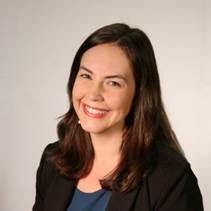
“I am still astonished this month, even amidst the pandemic and lockdown, even with the children home and homeschooling – that I had the self-confidence to push for professional goals,” Chen says. “I decided I wasn’t going to let fear stop me, and yes, I was capable and qualified, and that we are living in the golden age of remote work and ‘Why not me?’”
“There’s other opportunity created, a renaissance for military spouses who long had and tried to make business cases for remote work and now because of pandemic, remote work is now a great reality, greater job portability, and great opportunity moving forward,” Stutsman Fox says.
Million Stories: A Veteran Puts His Skills to Work for His Family and Others

Today, as we start Entrepreneurship Week, we’d like to highlight another veteran who put his skills to work to start not one, but two businesses.
After retiring from the military, Tim Sheehy, a former U.S. Navy SEAL officer and U.S. Army Ranger, co-founded Ascent Vision and Bridger Aerospace in Bozeman, Montana. Our partner Million Stories tells Sheehy’s story in their American Paycheck series.

American Paycheck hits the road across America to discover how millennials make money, what they do with the money they make, and how they cope with adverse financial situations in their communities. Check out more of these stories. You’ll love them.


